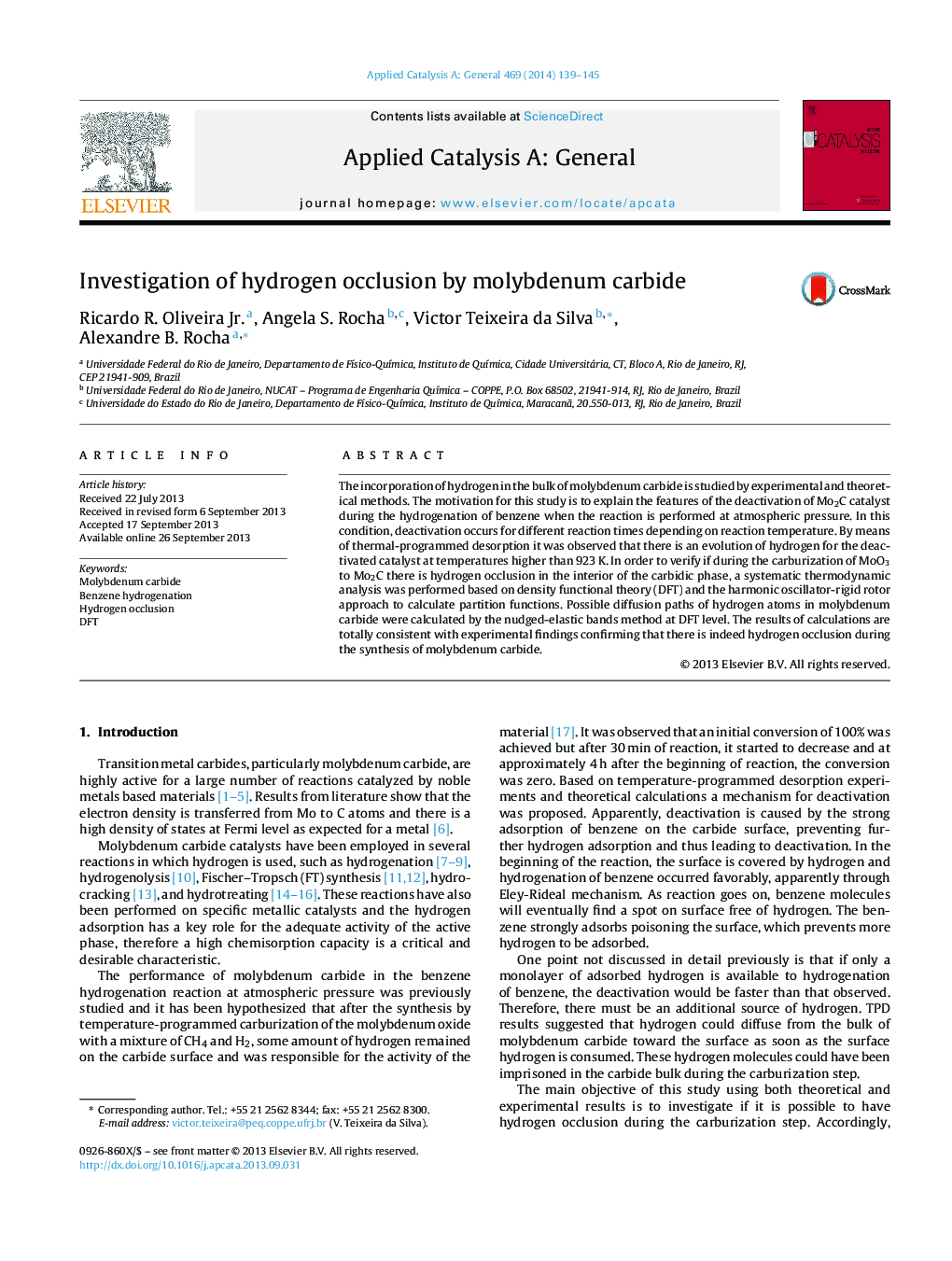| کد مقاله | کد نشریه | سال انتشار | مقاله انگلیسی | نسخه تمام متن |
|---|---|---|---|---|
| 40160 | 45845 | 2014 | 7 صفحه PDF | دانلود رایگان |
• Hydrogen is occluded in the lattice during β-Mo2C synthesis.
• The amount of occluded hydrogen depends on the cooling environment.
• During benzene hydrogenation at atmospheric pressure there is deactivation.
• Deactivation time is related to the amount of occluded hydrogen.
• There is hydrogen migration from the bulk to the surface during reaction.
The incorporation of hydrogen in the bulk of molybdenum carbide is studied by experimental and theoretical methods. The motivation for this study is to explain the features of the deactivation of Mo2C catalyst during the hydrogenation of benzene when the reaction is performed at atmospheric pressure. In this condition, deactivation occurs for different reaction times depending on reaction temperature. By means of thermal-programmed desorption it was observed that there is an evolution of hydrogen for the deactivated catalyst at temperatures higher than 923 K. In order to verify if during the carburization of MoO3 to Mo2C there is hydrogen occlusion in the interior of the carbidic phase, a systematic thermodynamic analysis was performed based on density functional theory (DFT) and the harmonic oscillator-rigid rotor approach to calculate partition functions. Possible diffusion paths of hydrogen atoms in molybdenum carbide were calculated by the nudged-elastic bands method at DFT level. The results of calculations are totally consistent with experimental findings confirming that there is indeed hydrogen occlusion during the synthesis of molybdenum carbide.
Figure optionsDownload high-quality image (92 K)Download as PowerPoint slide
Journal: Applied Catalysis A: General - Volume 469, 17 January 2014, Pages 139–145
